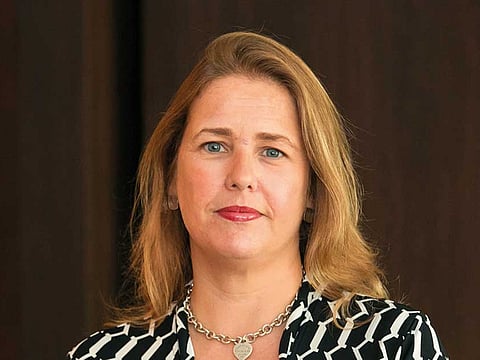UK enhances science collaboration with the UAE
Grants worth £400,000 given to Masdar Institute and Khalifa University as part of programme

Abu Dhabi: The British government is looking to enhance its scientific collaboration and research with the UAE and the other five Gulf Cooperation Council countries in areas such as climate change, smart cities, and health care, with grants of £400,000 (Dh1,847,688) being awarded to Masdar Institute and Khalifa University as part of its programme.
The programme — Gulf Science, Innovation and Knowledge Economy — is being run in partnership with the British Council, with a total of £9 million being allocated for the four-year project.
“This is a new strategic and financial commitment aimed at strengthening partnerships between the Gulf countries and the UK. It’s a £9 million fund that has been allocated by the British government over the next four years,” said Clara Grundy, deputy director at the British Council, and the current head of the project.
“The programme looks at recognising and addressing common global challenges, for example, climate change, cyber security, and health care. We want to develop an integrated research and innovation approach that brings together different researchers from different disciplines, sectors, and cultures to work together,” she added.
Grundy explained that innovation in science was among the main focus of the programme with the UAE, and that several applications have been sent from institutions in the country to join the project.
“In the UAE we are specifically looking at science and innovation. There was an open call for institutional links and research in the UAE around certain themes like renewable energy. We accepted two applications we received from Masdar Institute and Khalifa University,” she said.
“The projects that we accepted from these two institutions are being fully funded with £400,000 each for their two-year projects. The Masdar Institute project is focused on desalination, while the Khalifa University research is on the environment and the prevention of harmful algae,” she added.
Grundy said that along with funding scientific research in the UAE, the programme was also holding capacity building workshops to help early and mid-career researchers.
“Two of these workshops have been held in the UAE so far, one in Abu Dhabi and the other one in Dubai. In each of these courses there were approximately 20 researchers, and so we have trained 40 researchers this year alone.
“They were three-day workshops that looked at the communication skills — whether written or oral that are required for researchers to be able to collaborate on an international platform, and to develop those skills. [The training] also looked at how to bid for funding, and how to present their research,” she added.
Grundy said the programme had been very positive so far, and also added that it was crucial for countries to develop scientific partnerships with each other along with cultural and diplomatic ties.
“The reason we are now looking to the Gulf countries is because on a federal level they have started to take research innovation as a priority. The Gulf countries are looking out externally to collaborate on an international platform.
“In the world that are we are living in it is very important to strengthen scientific partnerships, and especially with the UAE’s vision of turning itself into a knowledge based economy, so this can only be beneficial to both countries,” she added.



